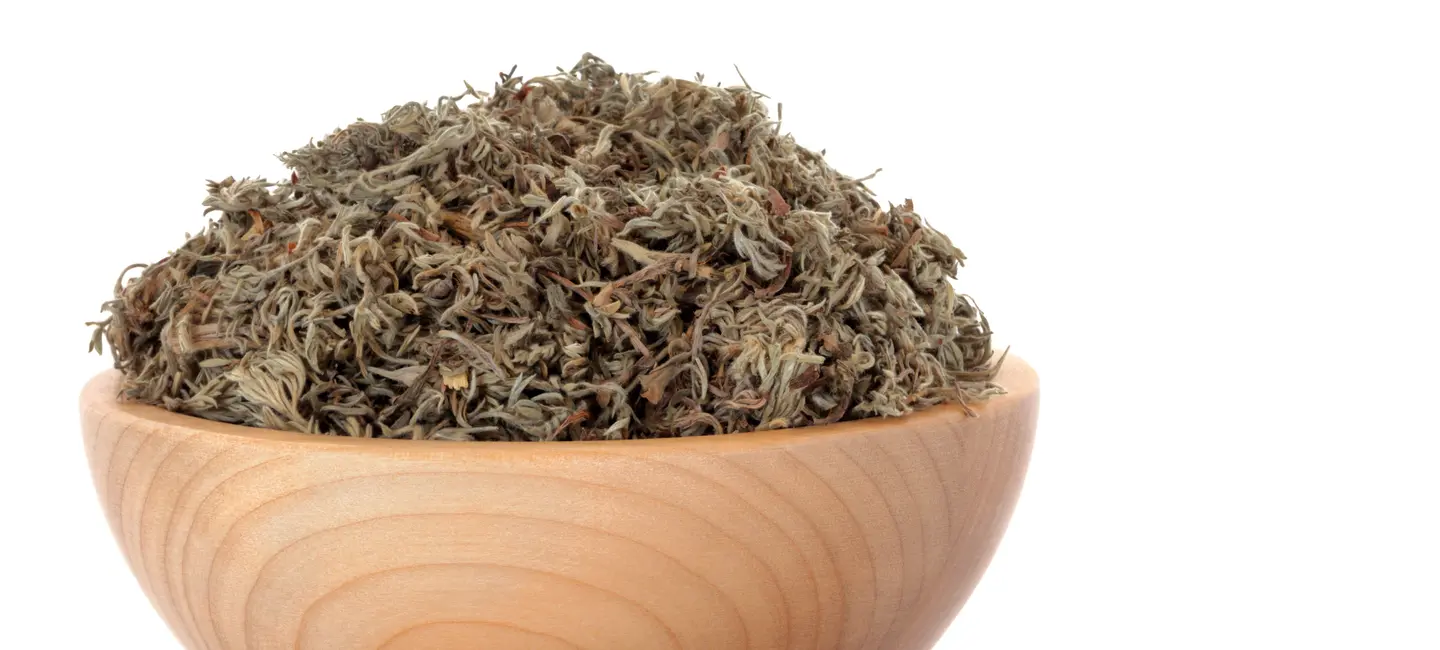
Yin chen refers to the plant species Artemisia capillaris or Artemisia scoparia. It has a long history of use in Traditional Chinese Medicines (TCM).
Yin chen contains chemicals that stimulate bile flow and protect the liver. These chemicals might also kill cancer cells and viruses. The oils in yin chen might kill fungus and bacteria.
People use yin chen for asthma, liver disease, menstrual cramps, and many other conditions, but there is no good scientific evidence to support these uses.
Is It Effective?
There is interest in using yin chen for a number of purposes, but there isn't enough reliable information to say whether it might be helpful.
Is it Safe?
When taken by mouth: Yin chen is possibly safe. It can cause nausea, bloating, and dizziness. High doses of 15 grams or more are possibly unsafe. These high doses can cause numbness, tremors, irregular heartbeat, and fainting.
Special Precautions & Warnings:
Pregnancy and breast-feeding: There isn't enough reliable information to know if yin chen is safe to use when pregnant or breast-feeding. Stay on the safe side and avoid use.
Surgery: Yin chen might act like a sedative. Using it together with anesthesia and other medications given during and after surgery might slow down the central nervous system too much. Stop using yin chen at least 2 weeks before a scheduled surgery.
Pentobarbital (Nembutal)
Interaction Rating=Moderate Be cautious with this combination.
Yin chen might cause sleepiness and drowsiness. Pentobarbital also causes drowsiness. There is some concern that taking yin chen with pentobarbital might cause too much drowsiness.
Sedative medications (CNS depressants)
Interaction Rating=Moderate Be cautious with this combination.
Yin chen might cause sleepiness and slowed breathing. Some medications, called sedatives, can also cause sleepiness and slowed breathing. Taking yin chen with sedative medications might cause breathing problems and/or too much sleepiness.
Herbs and supplements with sedative properties: Yin chen might cause sleepiness and slowed breathing. Taking it along with other supplements with similar effects might cause too much sleepiness and/or slowed breathing in some people. Examples of supplements with this effect include hops, kava, L-tryptophan, melatonin, and valerian.
There are no known interactions with foods.
There isn't enough reliable information to know what an appropriate dose of yin chen might be. Keep in mind that natural products are not always necessarily safe and dosages can be important. Be sure to follow relevant directions on product labels and consult a healthcare professional before using.
Armoise à Balais, Armoise Capillaire, Artemisia capillaris, Artemisia Officinalis, Artemisia scoparia, Capillary Wormwood, Ceinture de Saint-Jean, Chiu, Couronne de Saint-Jean, Herbe à Cent Goûts, In Chen, Inchin-Ko-To, Inchinko, Injin, Kawara-Yomogi, Kyunchinho, Rumput Roman, Shih Yin Ch'en, Yin Ch'en, Yin Ch'en Hao, Yin Chen Hao, Yin-Chen Wormwood.
Information on this website is for informational use only and is not intended to replace professional medical advice, diagnosis, or treatment. While evidence-based, it is not guaranteed to be error-free and is not intended to meet any particular user’s needs or requirements or to cover all possible uses, safety concerns, interactions, outcomes, or adverse effects. Always check with your doctor or other medical professional before making healthcare decisions (including taking any medication) and do not delay or disregard seeking medical advice or treatment based on any information displayed on this website.
© TRC Healthcare 2024. All rights reserved. Use and/or distribution is permitted only pursuant to a valid license or other permission from TRC Healthcare.
